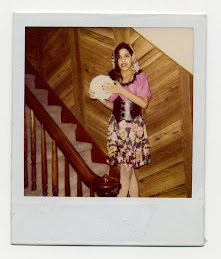Fair-skinned girls in their mid-teens walked past the nurses’ station as I was waiting to be admitted to the Eating Disorders Unit one brisk March morning.
Noticing their designer jeans and later learning they had parents who could afford European vacations and private tennis lessons, I felt out of place as the Cuban girl from the working class Union City.
My peers – fellow teen anorexics and bulimics in treatment at St. Claire’s Hospital - watched “Friends” and talked about boy bands. I read about Spanish-language soap-opera stars.
In the days before “cultural competence” and “diversity” were buzzwords, I’m sure the mostly-white patients initially were as fearful and suspicious of me as I was of them.
Going back to the first day when I was wheeled into the unit because I was too weak – by that point, I had “gained” weight, coming in at 79 pounds - Jasmine, the only other Latina there, smiled and walked toward the nurses’ station. She casually introduced herself to my parents, and then asked me: “I have a daughter about your age. How old are you?”
”Thirteen,” I answered.
”My daughter’s 12,” said Jasmine, a Puerto Rican woman who was in treatment for her binge- eating disorder.
“Carmen can sit with you,” my mother said before my parents had to leave. I knew my mother would be “relieved” leaving me in the hands of a mother and a Latina, someone who understood our culture.
Jasmine and I were lucky. For many Latinas and people of color, there is a stigma associated with getting treatment for mental health issues – eating disorders included.
“You go to the family with problems, or to a religious leader. You don’t go outside of family because you’ll shame the family,” said Annette Santiago-España, a psychologist and clinical team leader for the eating disorders team at Columbia’s Counseling & Psychological Services about the perception among some Latinas.
She said a reason there’s a misperception that white women primarily have eating disorders is that they were the only people that underwent research studies because they had more access to health care.
Santiago-España, who runs a women of color support group for undergrad and graduate students at Columbia where “eating issues sometimes come up,” said more women of color are becoming prone to eating disorders because of the impact of acculturation and body dissatisfaction – especially among Latina adolescents who grow up hearing from friends, family, schools and society that thin is ideal.
Yet “food is at the center of every celebration, every funeral, any occasion. … Food is a huge symbol for many communities of color,” she said.
For more information about people of color with eating disorders, visit http://www.pbs.org/wgbh/nova/thin/minorities.html. To watch me pitch Latina magazine’s Editor-in-Chief for a story about eating-disorder recovery, click here: http://www.mediabistro.com/articles/cache/a10037.asp


6 comments:
One would think that it is already a challenging experience putting yourself in this environment, trying to get healthy. It's a whole other layer to add the complex dynamics between you and your "mostly-white" peers at St. Claire's. That would never have occured to me. Thanks for this honest and very thorough portrait of the experience.
Simply put - amazing. Not only have you recovered from such a devastating disease, but you share your experience so candidly.
I'm curious to know more about how others outside the treatment facility helped or adhered you on your road to recovery. I'm sure your mother was super supportive, but what were the reactions of your teachers, classmates, the larger Latino community?
Certainly this is another example of how our medical research is so skewed. Reminds me of how only recently have researchers begun to discover how different women's heart attack and stroke symptoms are then men's, and how prevalent heart disease is in women. They jut never bothered to study women separately from women.
Here too, they only survey the white women?
Oops, I meant differently from men.
Carmen, I'm really glad to see you addressing your experience as a young Latino woman in this post. Looks to me like you have the beginning of a book here.
I'd love an installment from the perspective of your parents. How did they cope? What was their experience?
Jaime
Haha, Jaime, you always give me good ideas. I didn't even think to focus on parents, but I have two blogs to go!
DW and Jen, thank you for your comments as well!
-Carmen
Post a Comment